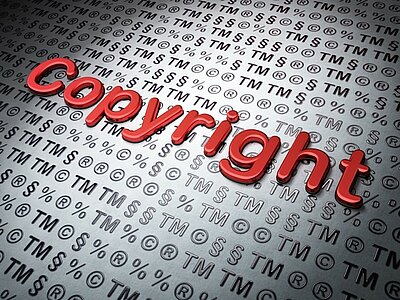General

Intellectual property means the rights which result from intellectual activity in the industrial, scientific, literary and artistic fields. Countries have laws to protect intellectual property for two main reasons. One is to protect moral and economic rights of creators in their creations and the rights of public to access those creations. The second is to promote creativity, dissemination and application of the results of those creations and to encourage fair trading which would contribute to economic and social development.
The Financial Administration of the Republic of Slovenia performs controls of the goods which are suspected of infringing intellectual property rights or which are or should have been subject to customs supervision or customs control in the customs territory of the EU, particularly when:
- they are declared for release for free circulation, export or re-export;
- they enter or leave the customs territory of the EU;
- they are placed under a suspensive arrangement, in a free zone or a free warehouse.
If the goods are suspected of an infringement of an intellectual property right, they may be temporarily detained, in which case the owner of the goods and the holder of the right acting as the declarant or the importer of the goods should be informed. Unless the parties involved come to an agreement regarding the destruction of the goods, the holder of the right should prove in front of the court that his rights have been curtailed.
The goods established to infringe an intellectual property right are destroyed as a rule.
A holder of an intellectual property right may submit to a competent customs department designated by the EU Member States (see the List of competent customs departments of the EU Member States) an application for action containing information on the goods and contact details of the persons to be informed in the case of the goods infringing intellectual property rights. This shall facilitate the identification of the goods by customs authorities on the one hand, and accelerate the entire procedure on the other, since the holder of the right and the contact person are already known.
In the case of urgent or important information concerning goods, two forms have been elaborated for the holders of intellectual property rights to inform the competent customs departments of the EU Member States.
Details
Publications
- For easier completion of applications for action and extension requests, the Commission has prepared the Manual for the completion of applications
Legislation
EU legislation
Regulations
- Regulation (EU) No 608/2013 of the European Parliament and of the Council of 12 June 2013 concerning customs enforcement of intellectual property rights and repealing Council Regulation (EC) No 1383/2003
- Commission Implementing Regulation (EU) No 1352/2013 of 4 December 2013 establishing the forms provided for in Regulation (EU) No 608/2013
- Commission Implementing Regulation (EU) No 2020/1209 of 13 August 2020 amending Implementing Regulation (EU) No 1352/2013 establishing the forms provided for in Regulation (EU) No 608/2013 of the European Parliament and of the Council concerning customs enforcement of intellectual property rights
National legislation
Acts
Rules
- Rules on the method of payment of security, the criteria for determining its amount and the method of its release or exercise in the event of application of customs measures for violation of intellectual property rights
 REPUBLIC OF SLOVENIA
REPUBLIC OF SLOVENIA